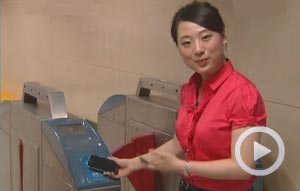From the Chinese Press
Updated: 2013-07-24 07:22
(China Daily)
|
|||||||||||
Tip of a bacteria-infected iceberg
A China Central Television sting operation revealed that the ice served by three foreign fast food chains in Beijing contained up to 19 times more bacteria than the permissible limit. It seems that bacteria-infected ice is just the tip of the iceberg of tainted food served by many fast food restaurants, says an article in Beijing Times. Excerpts:
The latest food scandal involving well-known fast food chains suggests that, apart from ensuring that ice-makers' equipment are clean, the authorities also have to ensure they change their food safety and store management practices.
The three fast food chains are famous brands known for their relatively high hygiene standards. If such famous fast food chains can serve tainted food, one shudders to think what the smaller chains must be serving.
Such scandals not only highlight the lack of social responsibility on the part of well-known fast food chains, but also the lack of strict market supervision. Although it is the responsibility of fast food restaurants to ensure that the ice and other ingredients they serve are safe for human consumption, the government should strengthen supervision to guarantee that they do so.
A not-so-helpful housing regulation
The latest notice to regulate the rental housing market in Beijing imposes limitations on "group renting". But despite being aimed at providing young people with better living conditions, the regulation is not so practical and could even discourage youths from pursuing their dreams in the capital, says an article in Xiaoxiang Morning News. Excerpts:
According to the new regulation, the average living space per person in any rented apartment should be 5 square meters or more, and not more than two people can share one room. The regulation also says that the interior structure of an apartment cannot be altered to divide it into several smaller rooms, and kitchens, rest rooms and storerooms cannot be used as bedrooms.
The regulation aimed at streamlining "group renting" is obviously prompted by media reports on, among other things, an 80-square-meter, two-bedroom high-end apartment off the East Third Ring Road which had 25 tenants, who used to sleep on bunk beds in the two bedrooms and the living room.
Many young people choose such accommodation to save money during their early working days. But the question is: Is the new regulation practical enough to make life for working youths in Beijing any better, especially because it's not possible for most of them to buy an apartment or rent one alone? The regulation, although aimed at improving the living conditions of young people in Beijing, will force them to run away from the city.
The local government can solve the problem of "group renting" by taking practical measures. Perhaps the best way to provide affordable housing for people is to rent out the more than 300,000 apartments that are lying vacant in the capital. It's time the local government gave the issue a serious thought. Or else, it could help build more houses for the rental market.
(China Daily 07/24/2013 page9)
Today's Top News
Nation falling short on IT security: survey
Quake in NW China kills 95
DPRK halt on rocket facility confirmed
Office to close due to protest in Manila
Sansha welcomes new hospital
Xi urges rural development
Consumer optimism hits a high
Guangzhou to launch visa-free stays
Hot Topics
Lunar probe , China growth forecasts, Emission rules get tougher, China seen through 'colored lens', International board,
Editor's Picks

|

|

|

|

|

|





